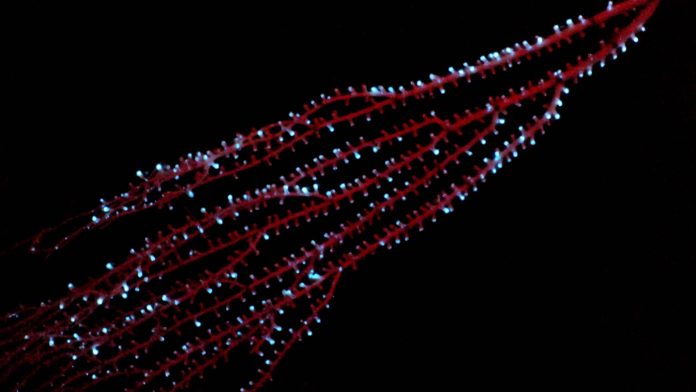
algae: Single-celled organisms, as soon as thought-about crops (they aren’t). As aquatic organisms, they develop in water. Like inexperienced crops, they rely on daylight to make their meals.
ancestor: A predecessor. It may very well be a household forebear, corresponding to a father or mother, grandparent or great-great-great grandparent. Or it may very well be a species, genus, household or different order of organisms from which some later one developed. As an illustration, historical dinosaurs are the ancestors of right this moment’s birds. (antonym: descendant)
micro organism: (singular: bacterium) Single-celled organisms. These dwell almost in all places on Earth, from the underside of the ocean to inside different residing organisms (corresponding to crops and animals). Micro organism are one of many three domains of life on Earth.
biologist: A scientist concerned within the examine of residing issues.
bioluminescent: (n. bioluminescence) An adjective that describes the sunshine emitted by sure animals — corresponding to fireflies, squid and deep-sea fishes — and by some shallow-water algae.
chemical: A substance fashioned from two or extra atoms that unite (bond) in a hard and fast proportion and construction. For instance, water is a chemical made when two hydrogen atoms bond to 1 oxygen atom. Its chemical components is H2O. Chemical additionally may be an adjective to explain properties of supplies which might be the results of varied reactions between completely different compounds.
chemical response: A course of that includes the rearrangement of the molecules or construction of a substance, versus a change in bodily type (as from a stable to a fuel).
colleague: Somebody who works with one other; a co-worker or group member.
coral: Marine animals that usually produce a tough and stony exoskeleton and have a tendency to dwell on reefs (the exoskeletons of lifeless ancestor corals).
DNA: (quick for deoxyribonucleic acid) An extended, double-stranded and spiral-shaped molecule inside most residing cells that carries genetic directions. It’s constructed on a spine of phosphorus, oxygen, and carbon atoms. In all residing issues, from crops and animals to microbes, these directions inform cells which molecules to make.
evolution: (v. to evolve) A course of by which species bear modifications over time, often via genetic variation and pure choice. These modifications often lead to a brand new sort of organism higher fitted to its atmosphere than the sooner sort. The newer sort will not be essentially extra “superior,” simply higher tailored to the actual situations by which it developed. Or the time period can check with modifications that happen as some pure development throughout the non-living world (corresponding to laptop chips evolving to smaller units which function at an ever sooner pace).
evolutionary biologist: Somebody who research the adaptive processes which have led to the variety of life on Earth. These scientists can examine many alternative topics, together with the microbiology and genetics of residing organisms, how species change to adapt, and the fossil document (to evaluate how varied historical species are associated to one another and to modern-day family members).
fossil: Any preserved stays or traces of historical life. There are numerous various kinds of fossils: The bones and different physique elements of dinosaurs are known as “physique fossils.” Issues like footprints are known as “hint fossils.” Even specimens of dinosaur poop are fossils. The method of forming fossils is named fossilization.
genetic: Having to do with chromosomes, DNA and the genes contained inside DNA. The sector of science coping with these organic directions is called genetics. Individuals who work on this area are geneticists.
jellies: (in biology) These are gelatinous animals that drift in water (largely seawater) or brackish (semi-salty) estuaries. For greater than 500 million years, they’ve moved across the oceans by pumping pulses of water via their jelly-like tissue. Their physique usually has an umbrella-shaped bell. Trailing from round a central mouth could also be many tentacles. Though jellies don’t have brains, they do have a nervous system which might typically detect mild, motion or sure chemical compounds. Some members of this household, often called cnidarians, are often called jellyfish. In truth, none are true fish however associated to hydras and corals.
organism: Any residing factor, from elephants and crops to micro organism and different varieties of single-celled life.
prey: (n.) Animal species eaten by others. (v.) To assault and eat one other species.
chance: A mathematical calculation or evaluation (basically the prospect) of how probably one thing is to happen.
sea: An ocean (or area that’s a part of an ocean). In contrast to lakes and streams, seawater — or ocean water — is salty.
species: A gaggle of comparable organisms able to producing offspring that may survive and reproduce.
trait: A attribute characteristic of one thing. (in genetics) A top quality or attribute that may be inherited.
tree of life: A diagram that makes use of a branched, treelike construction to indicate how organisms relate to 1 one other. Outer, twiglike, branches signify species alive right this moment. Ancestors of right this moment’s species will lie on thicker limbs, ones nearer to the trunk.




































